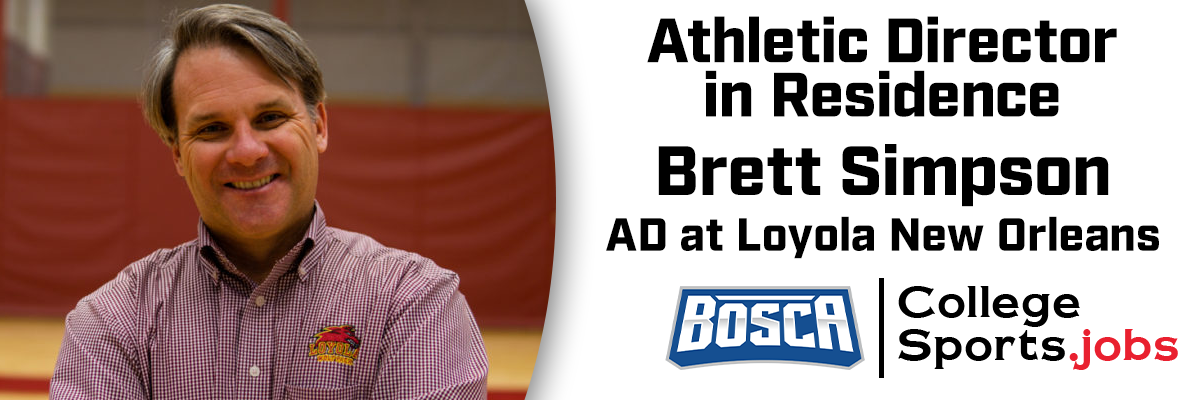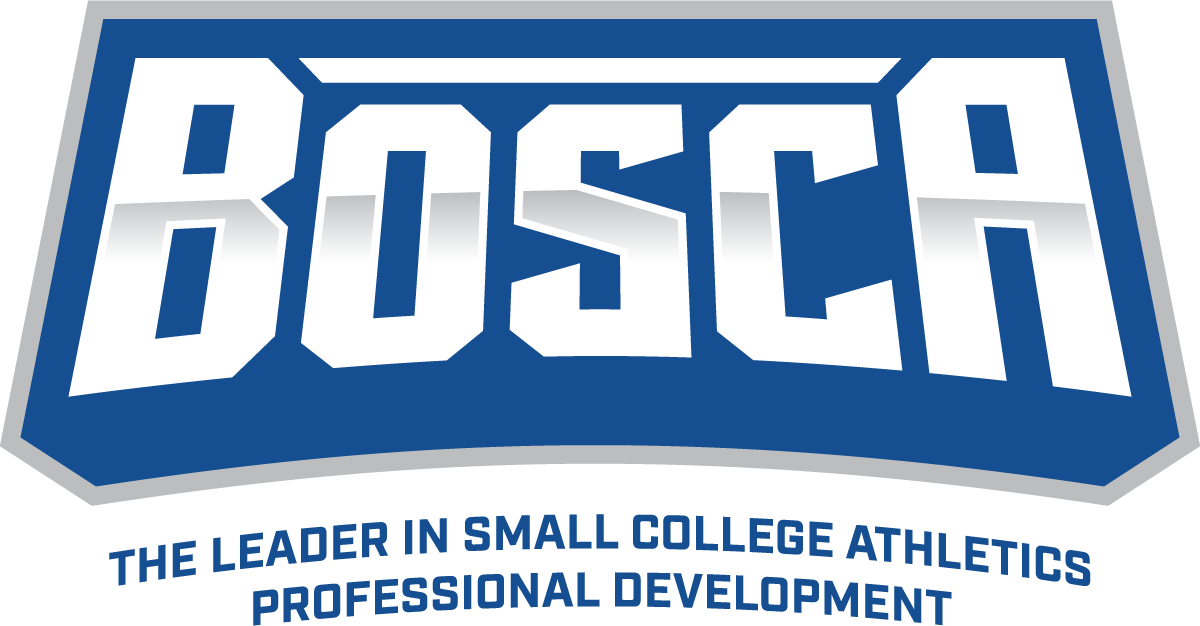AD in Residence: Loyola New Orleans AD Brett Simpson
Loyola New Orleans AD Brett Simpson dives into building relationships across campus, communication with your CEO, retention, the benefits of a big city and more.

You have been with the university for nearly three decades, serving as AD for the last 11 years. Throughout your time from Assistant Coach to AD, what have you done to build and cultivate relationships across the campus that help you in your position now?
The most important part of building relationships (especially across campus) is to earn the trust of your counterparts. The best way to do that is to create win-wins and deliver results. Our student-athletes deliver results in the classroom, which certainly helps with faculty relationships. In other areas across campus, we are good partners for the common good of the institution.
You are working with your third president. How have you changed your communication style or how you manage up with each leader?
I’ve had the pleasure of working for three very supportive presidents. The one constant with respect to communication with each of them was a focus on high-level strategic items to move our department and institution forward. Also, it is important to make them aware of threats that may affect us and how to turn those threats into future opportunities.
Small colleges across the country are often navigating the challenges of limited resources amid increasing costs. How do you prioritize budget allocation across different sports and initiatives to maximize the impact of limited funds?
I think we do a good job of establishing a baseline budget that is equitable from program to program. Outside of that, it’s very important to empower coaches to generate resources for their respective programs. Our coaches are given fundraising goals to help with the day-to-day operations of the program but also have the ability to work with donors on initiatives that they feel are important to their programs. We have a development officer from advancement who works with our coaches on these initiatives and communicates with campus leadership to make sure we are on the same page.
How do you approach the development and retention of coaches and administrative staff with limited resources?
Staff development is very important to us. We want our staff to learn and grow during their time at Loyola. We encourage them to be leaders in their field by serving on committees and in leadership positions in their professional associations. We have an impressive list of coaching and staff “alumni” who moved on to positions in Division I and professional sports. We have also been able to retain staff by giving them the autonomy to do their jobs and supporting them well. We have a good number of long-tenured staff who are invested in our Jesuit mission and love living in the city of New Orleans.
Being in a large city like New Orleans, how has Loyola Athletics leveraged its location to enhance the student-athlete experience and build community engagement? What is the impact of being neighbors with a Division I school like Tulane?
The city is a great asset for our department. Our campus is located in the heart of Uptown New Orleans and the streetcar literally stops at our front door. Our students engage with the local community in a myriad of ways, including the arts, music, professional sports, and a growing business community. Tulane has been a great neighbor for us. They opened their doors to us after Hurricane Ida tore the gym roof off. I’m not sure we would have won the 2022 men’s basketball national championship without their help, which included hosting an opening round in their gym.
What's your primary focus for the department in the coming years? Any major initiatives coming up?
We’re always monitoring the landscape of college athletics and evaluating what future programs to add to our portfolio. We are in the silent phase of a capital campaign with an emphasis on outdoor facilities to potentially add new sports. Our gym was built during a time when Loyola did not offer athletics, so we’ve retrofitted a recreational center to coexist with intercollegiate athletics. “The Den” could certainly use some TLC and we’re working hard to get that done.

